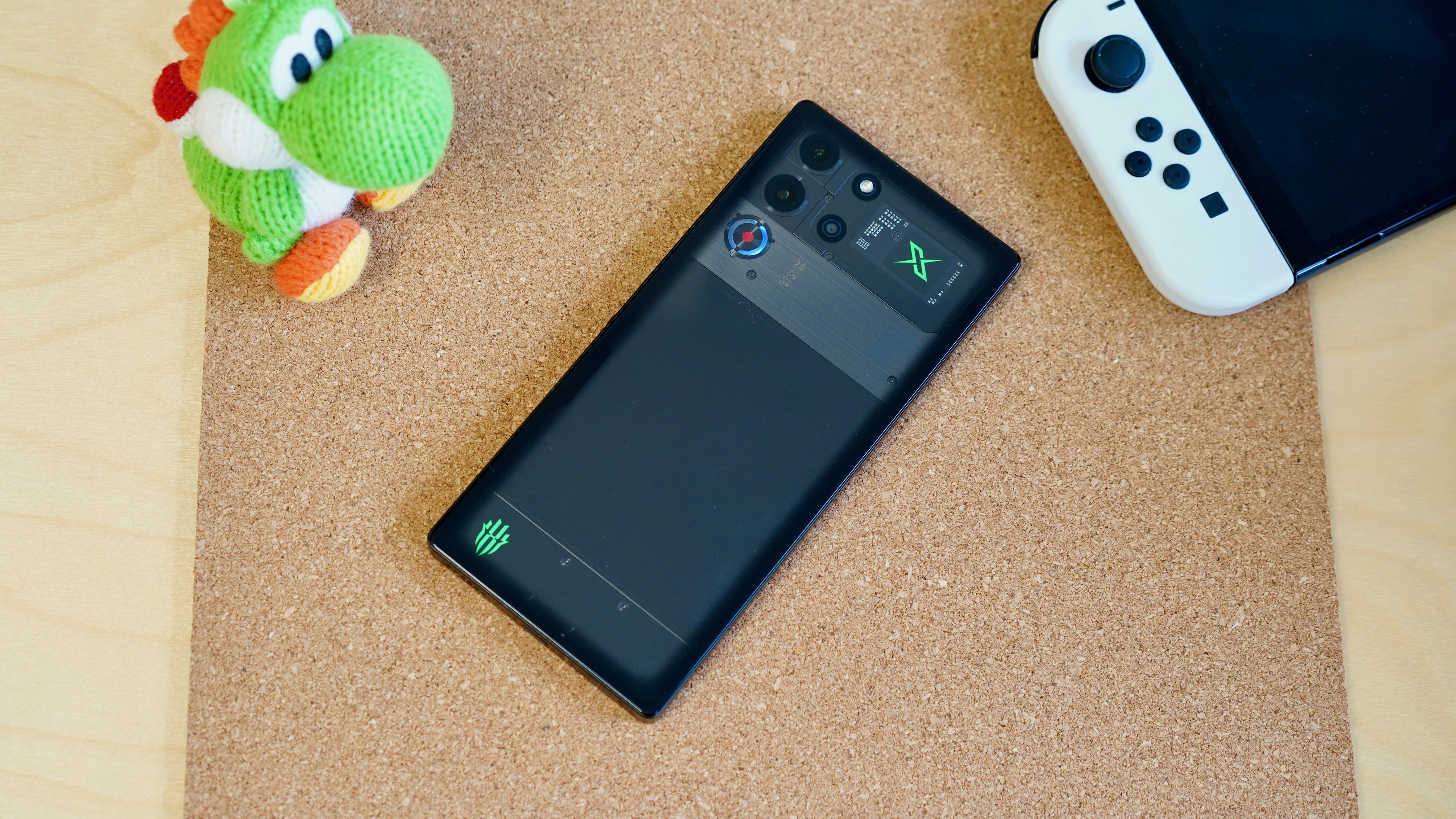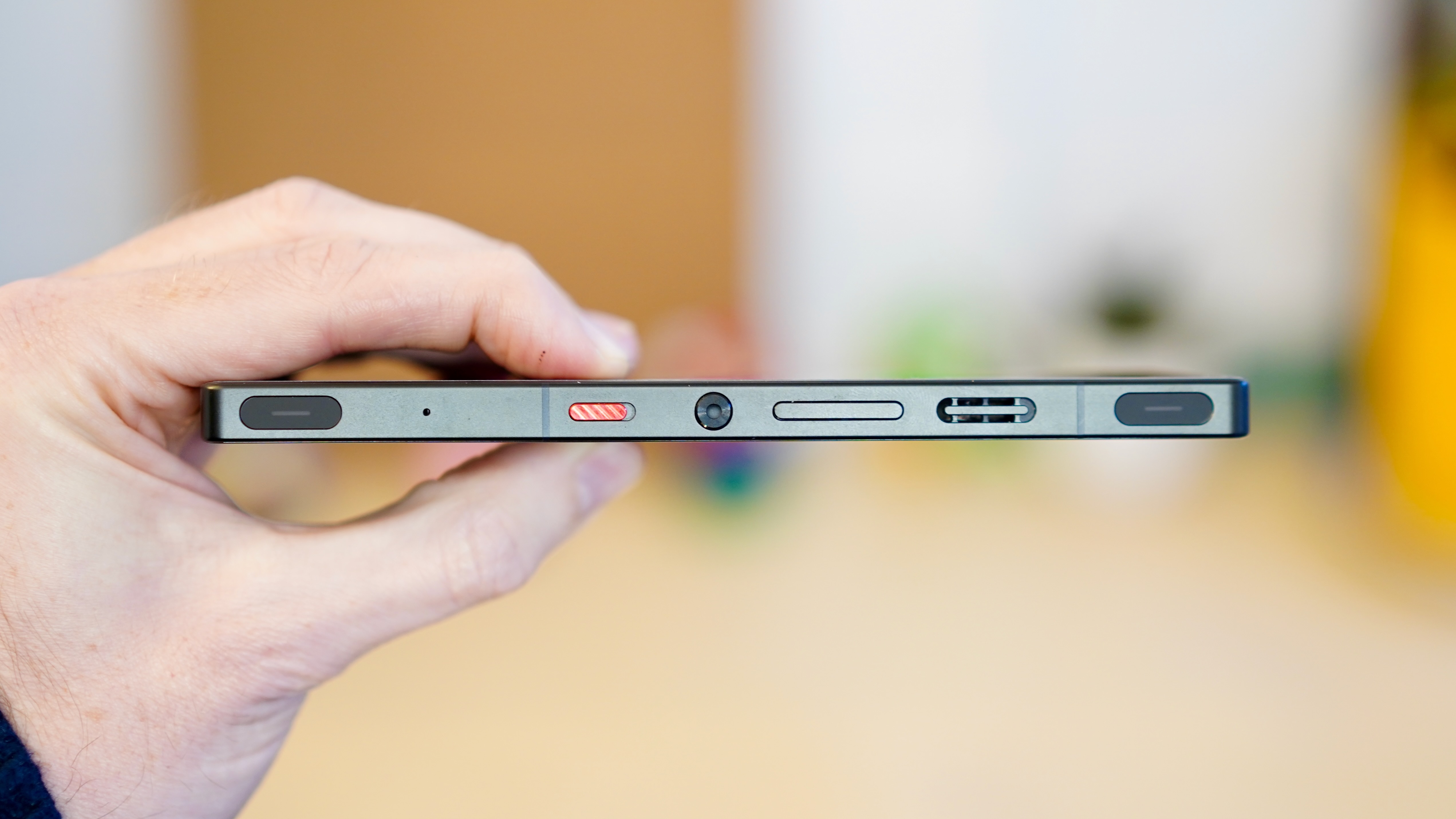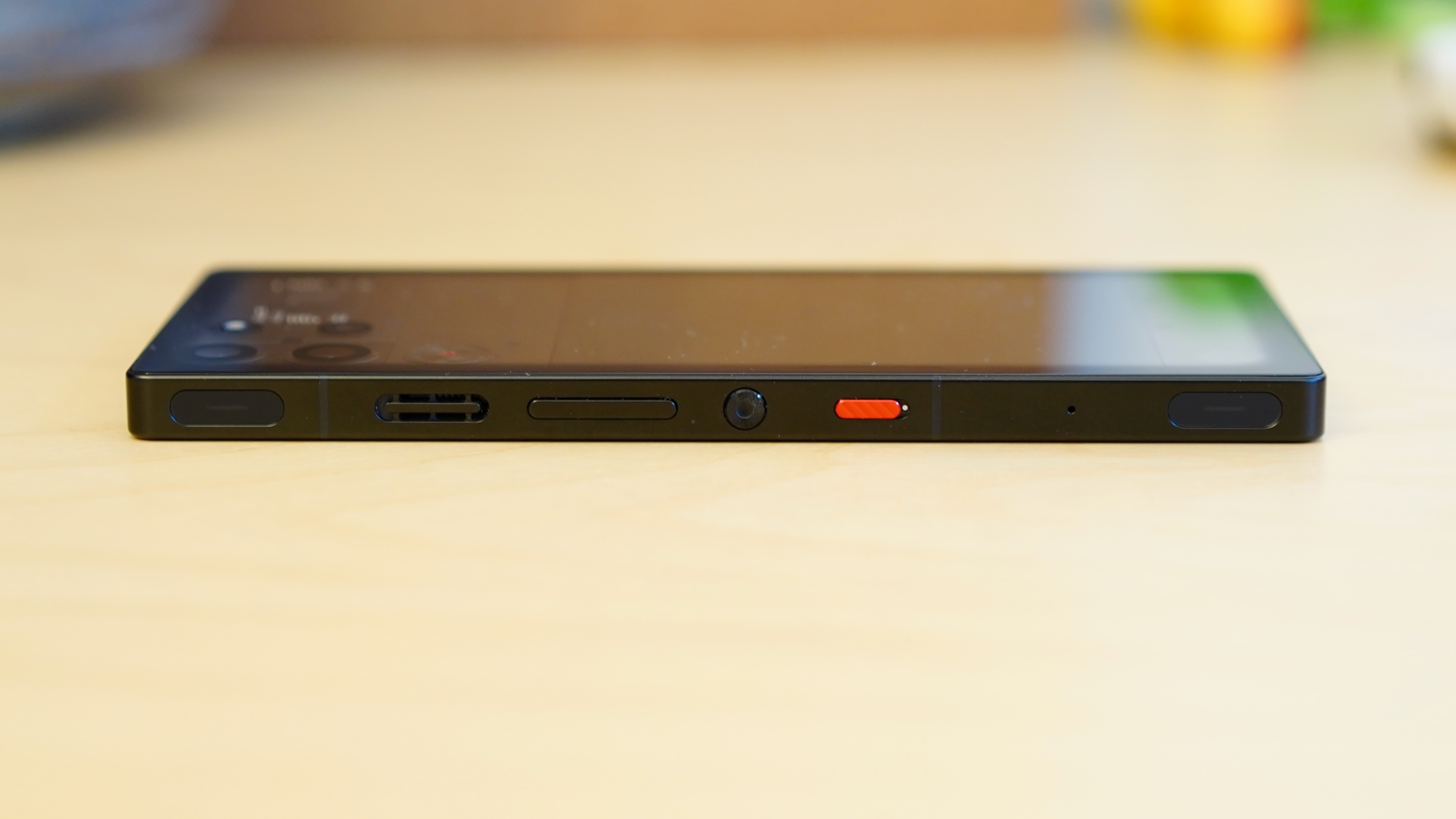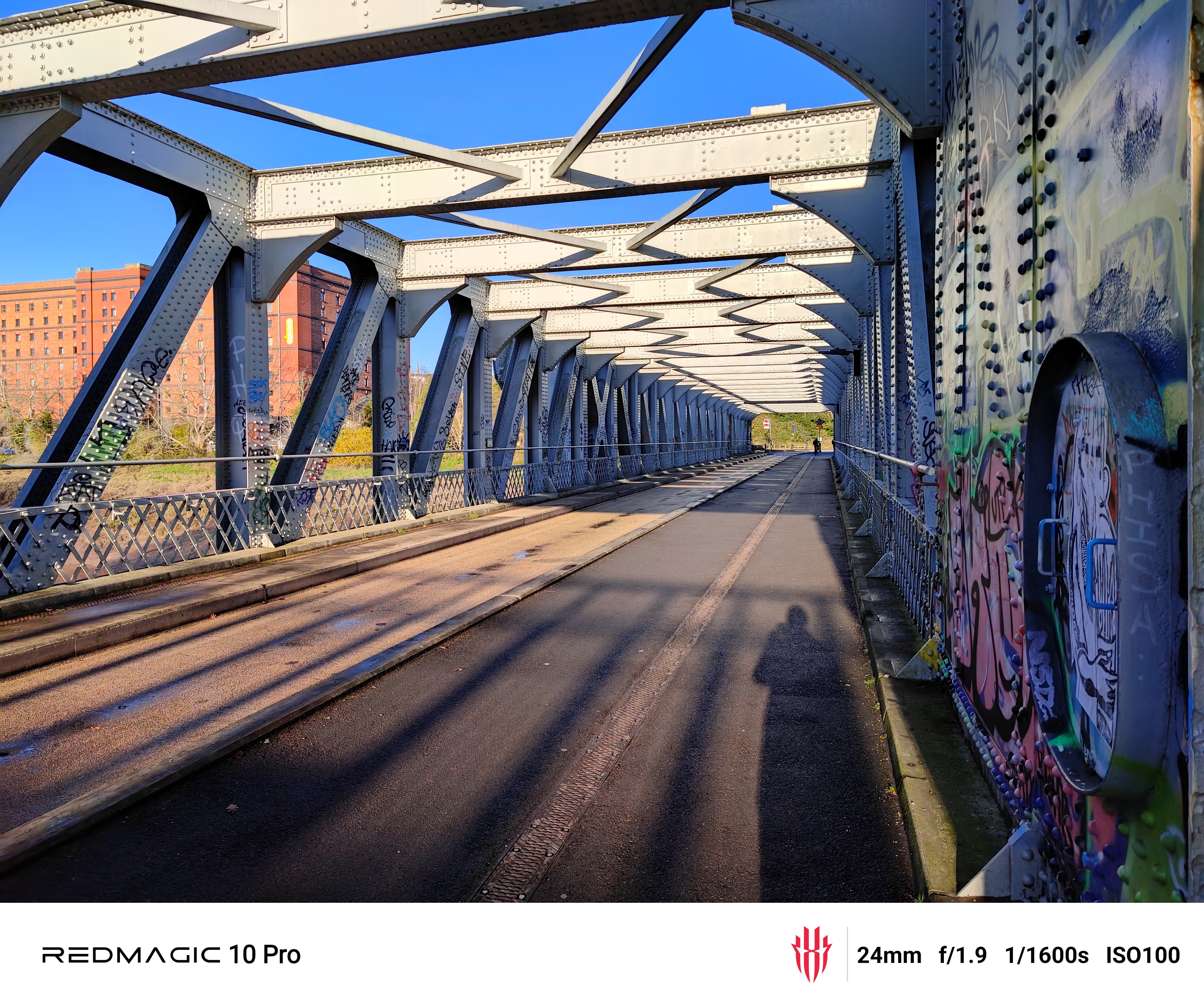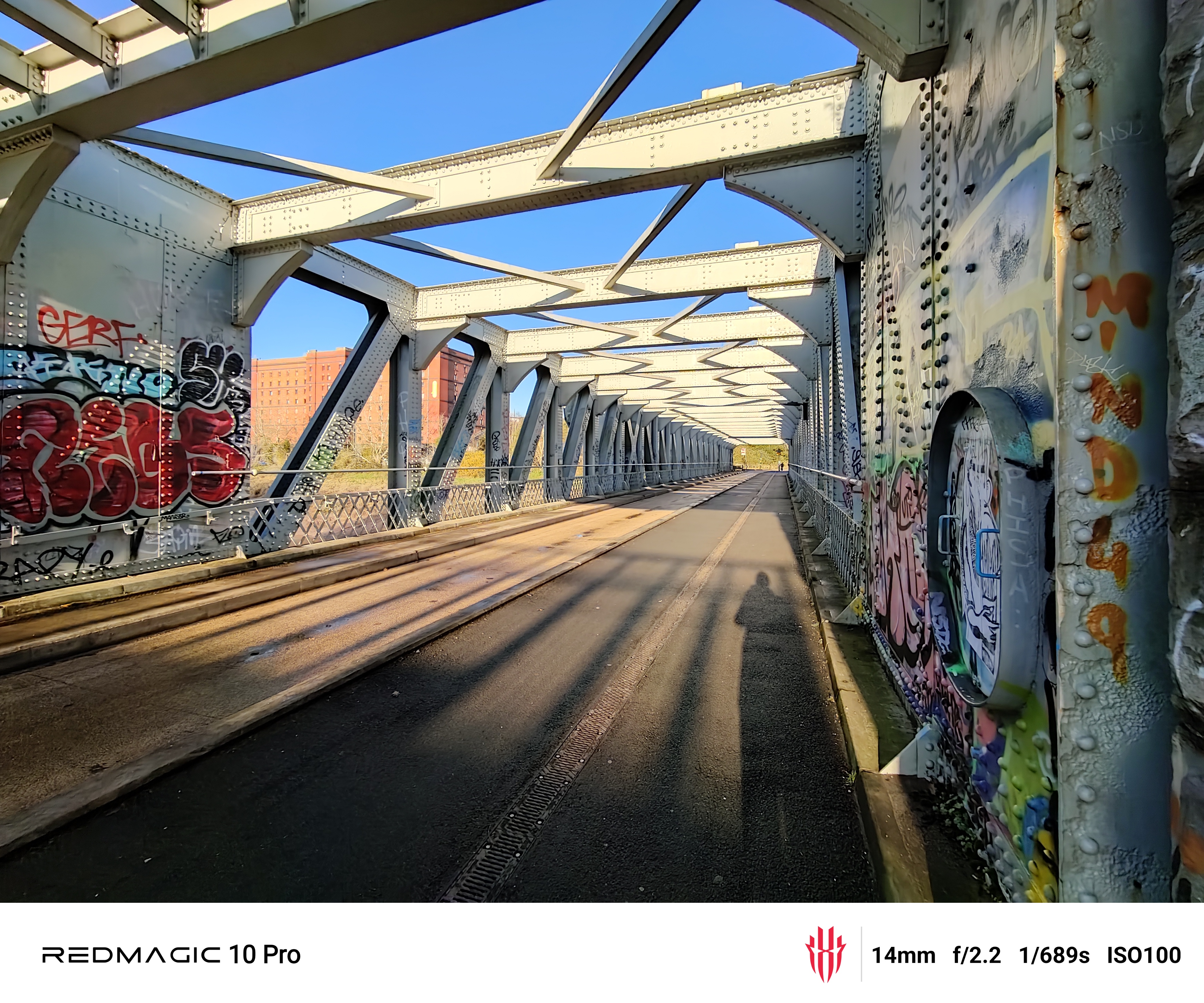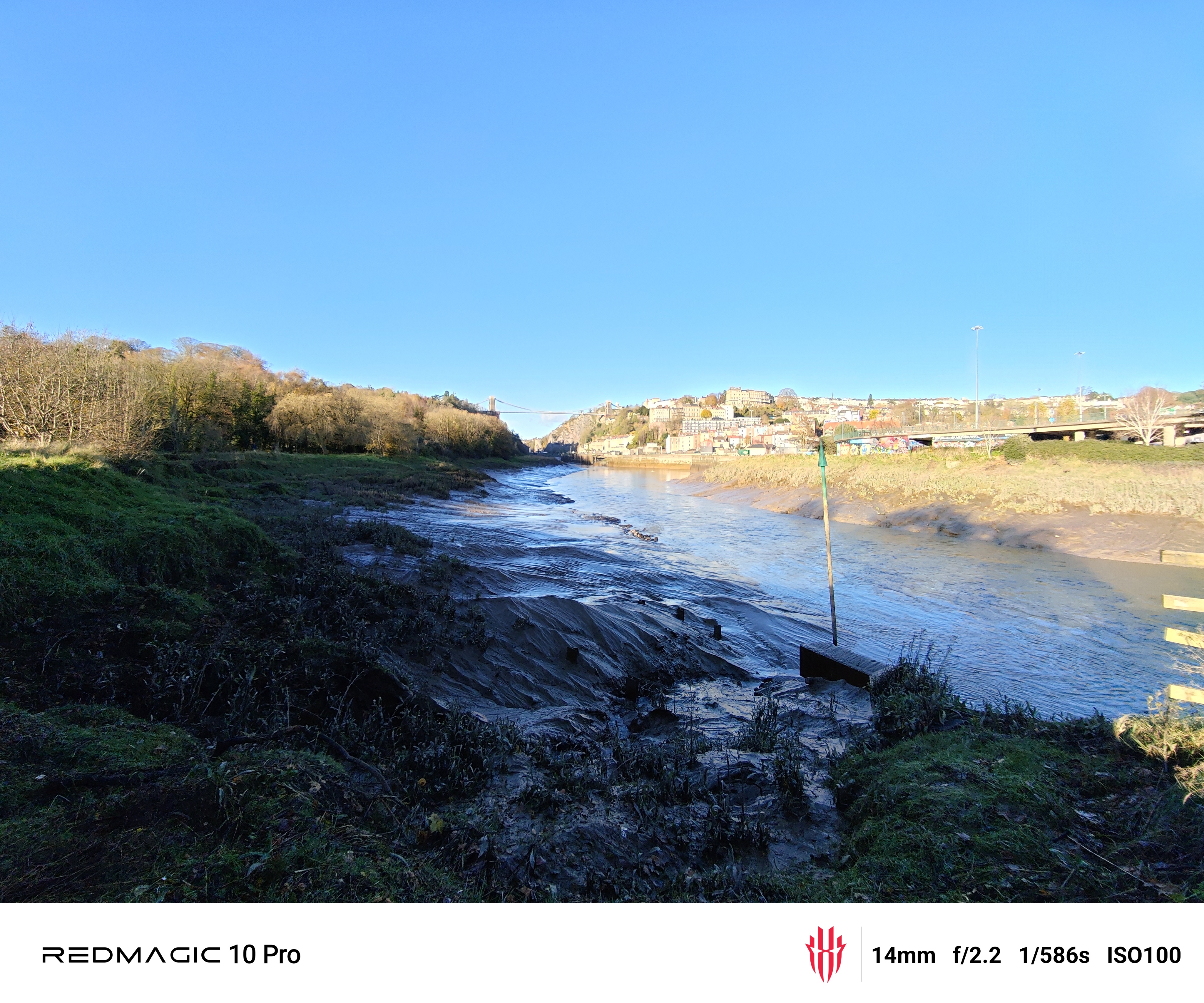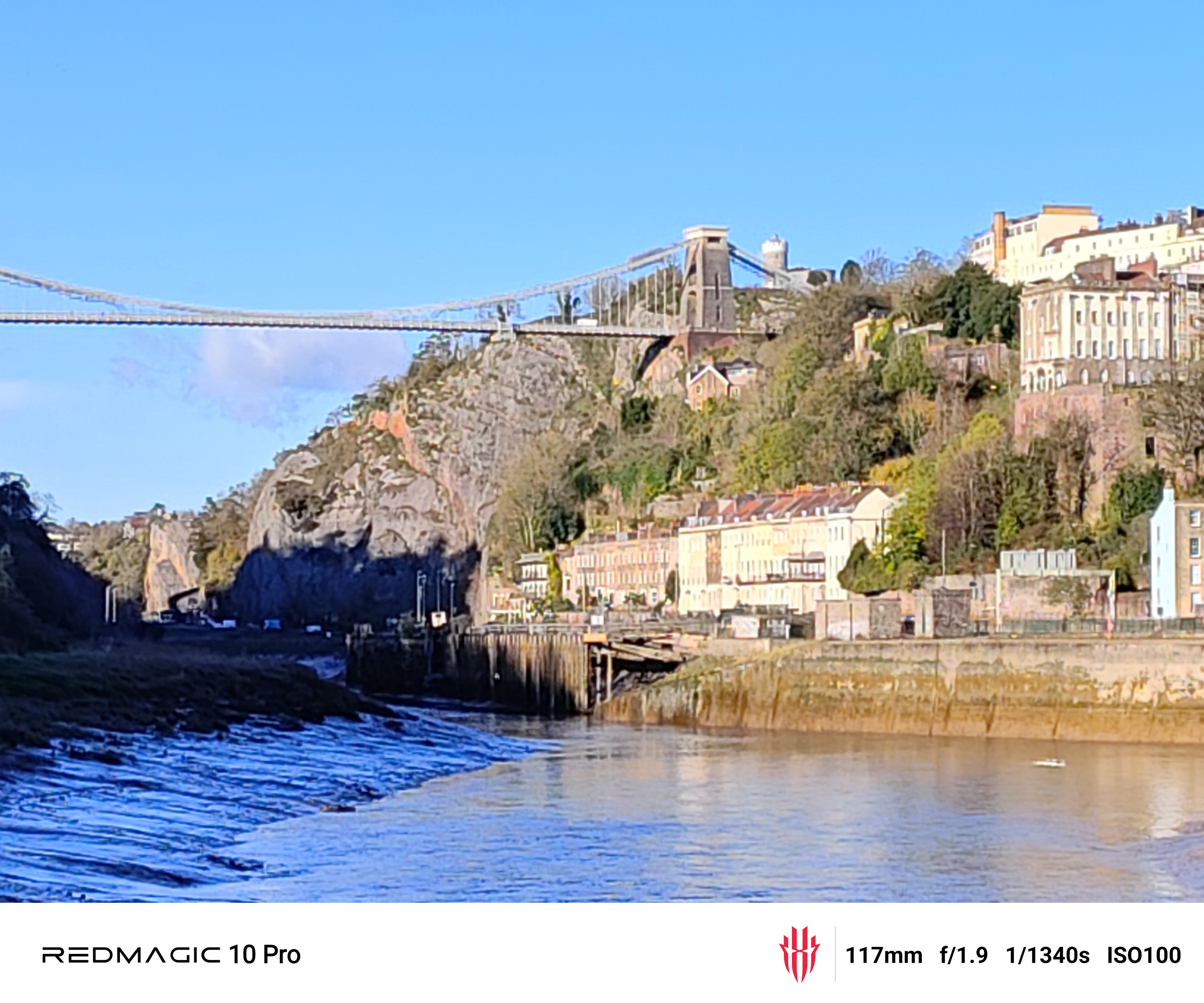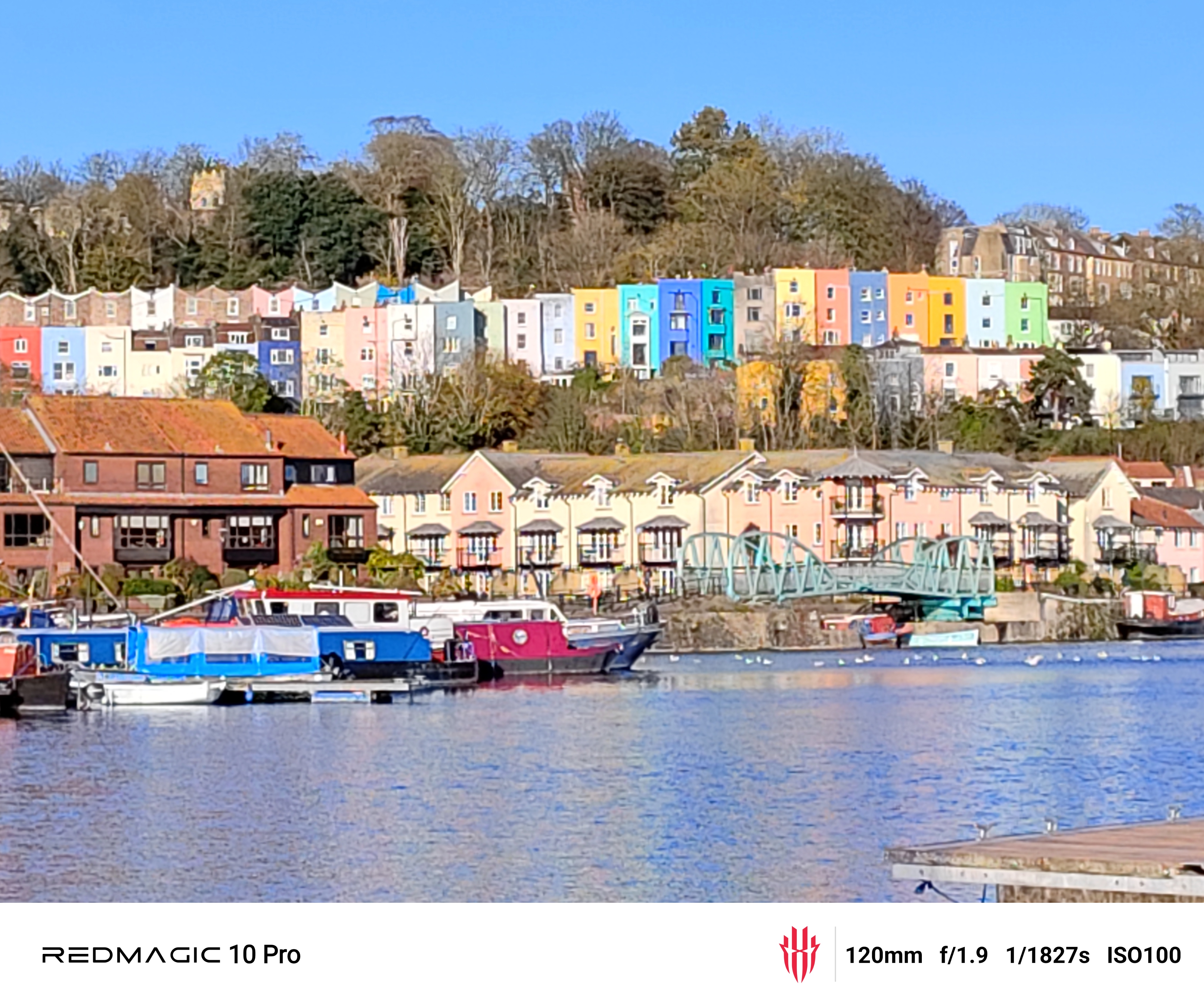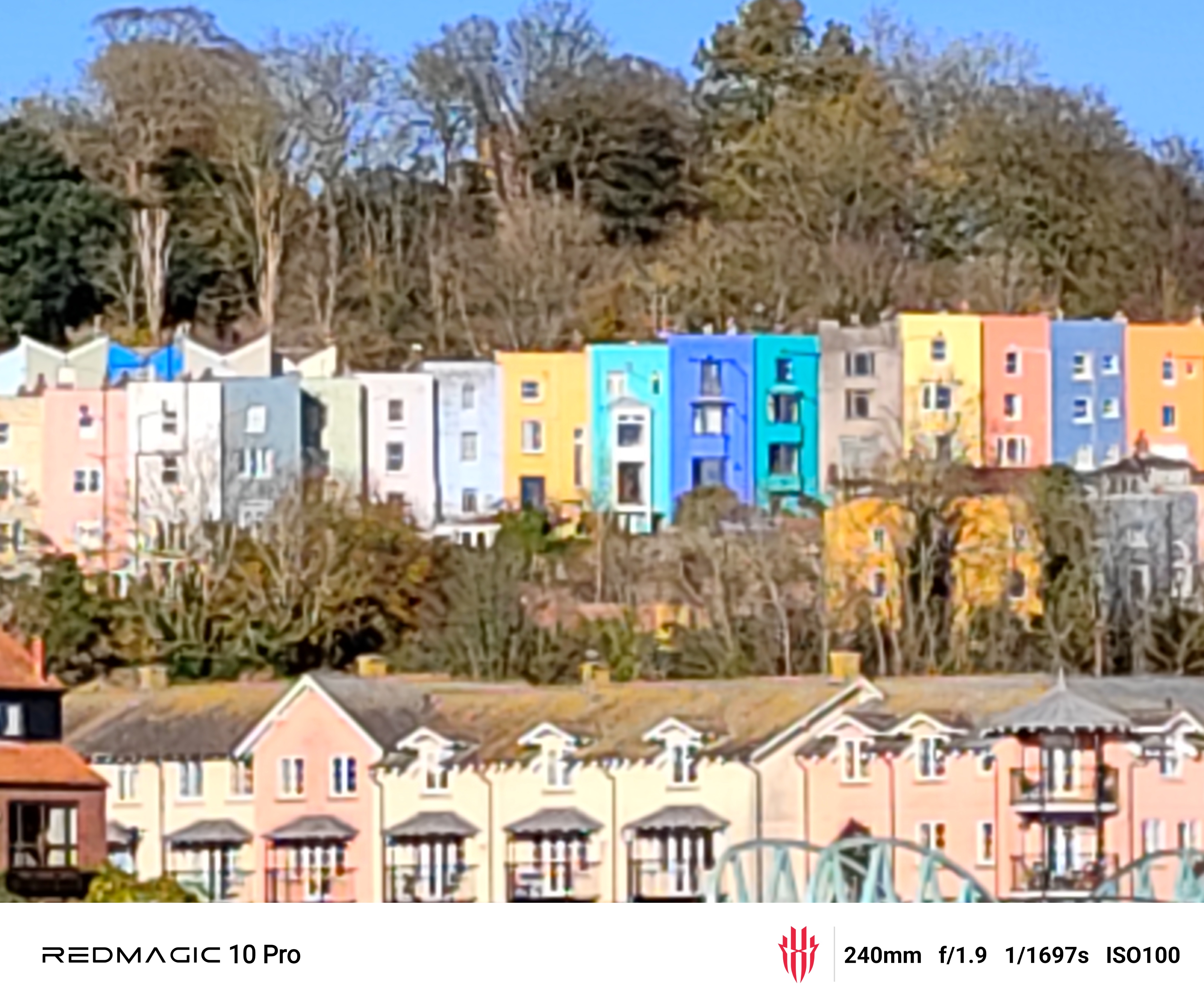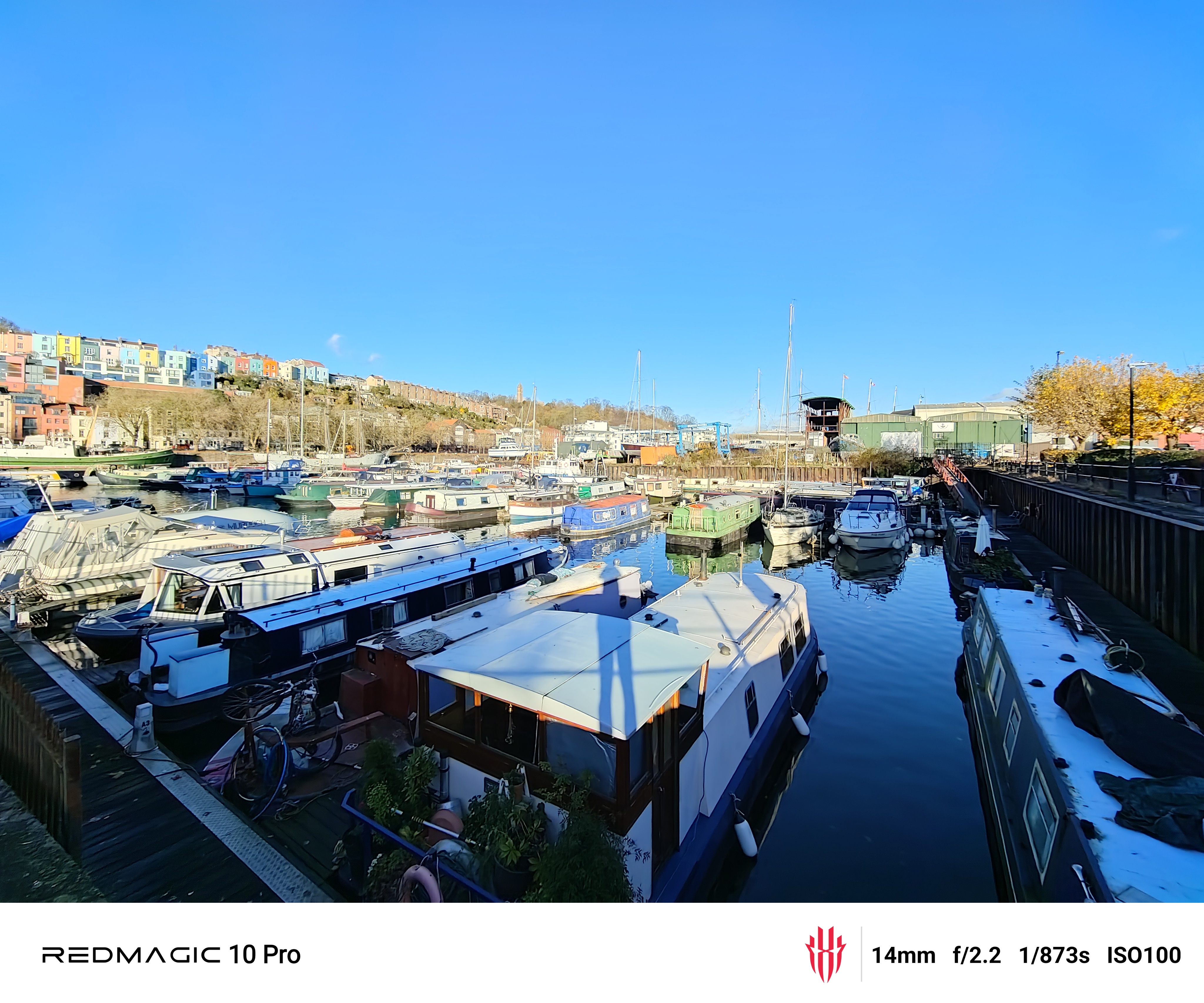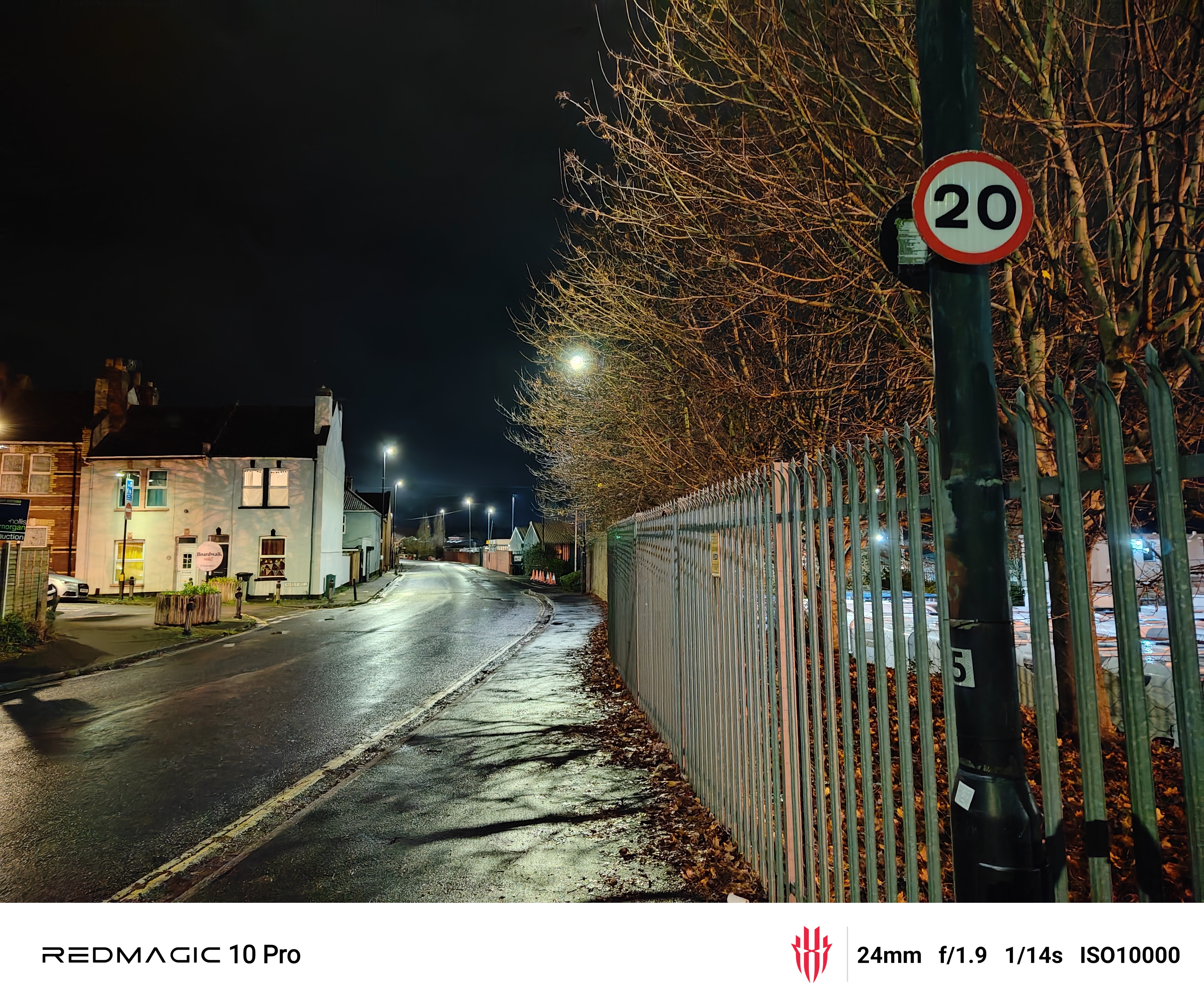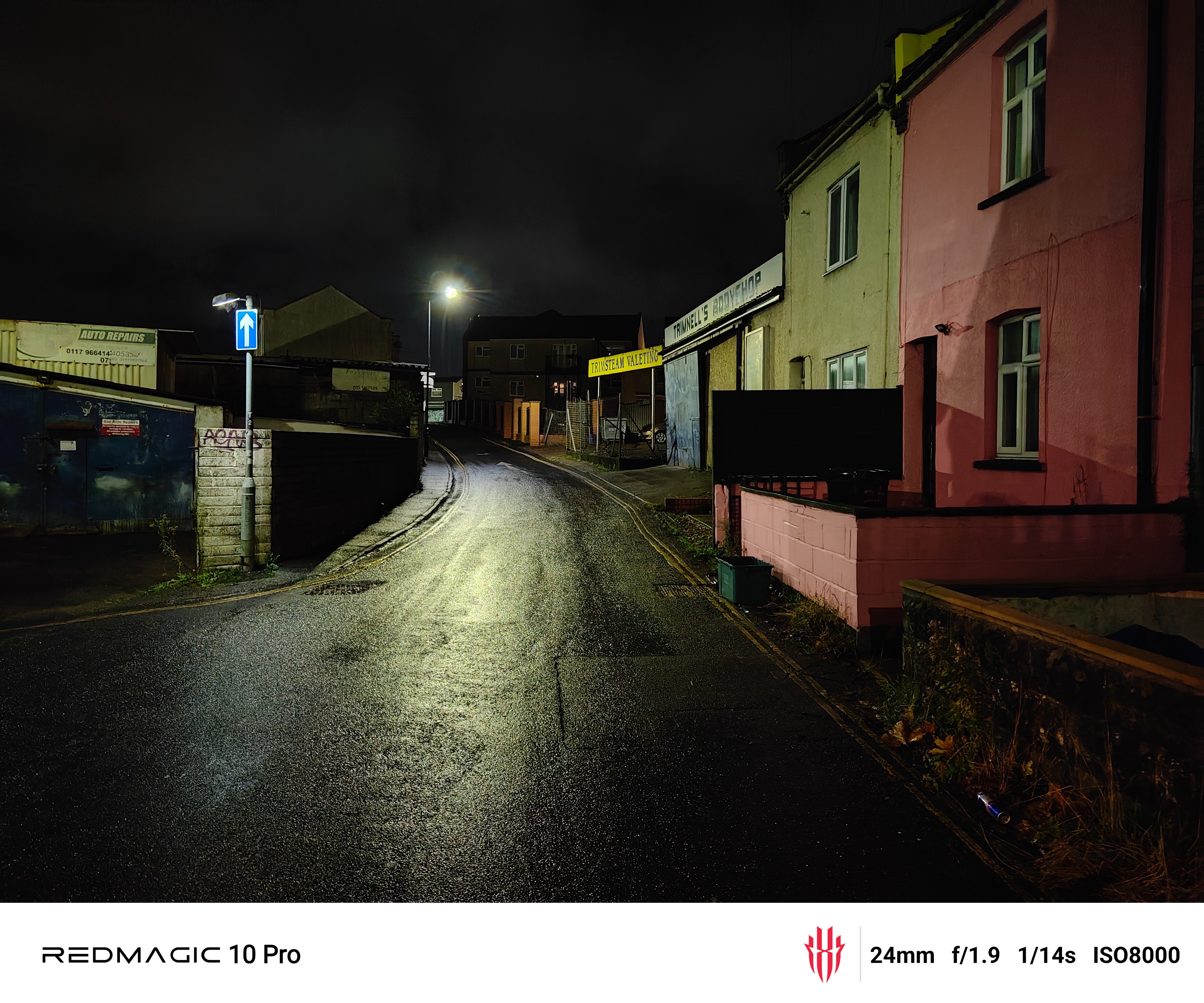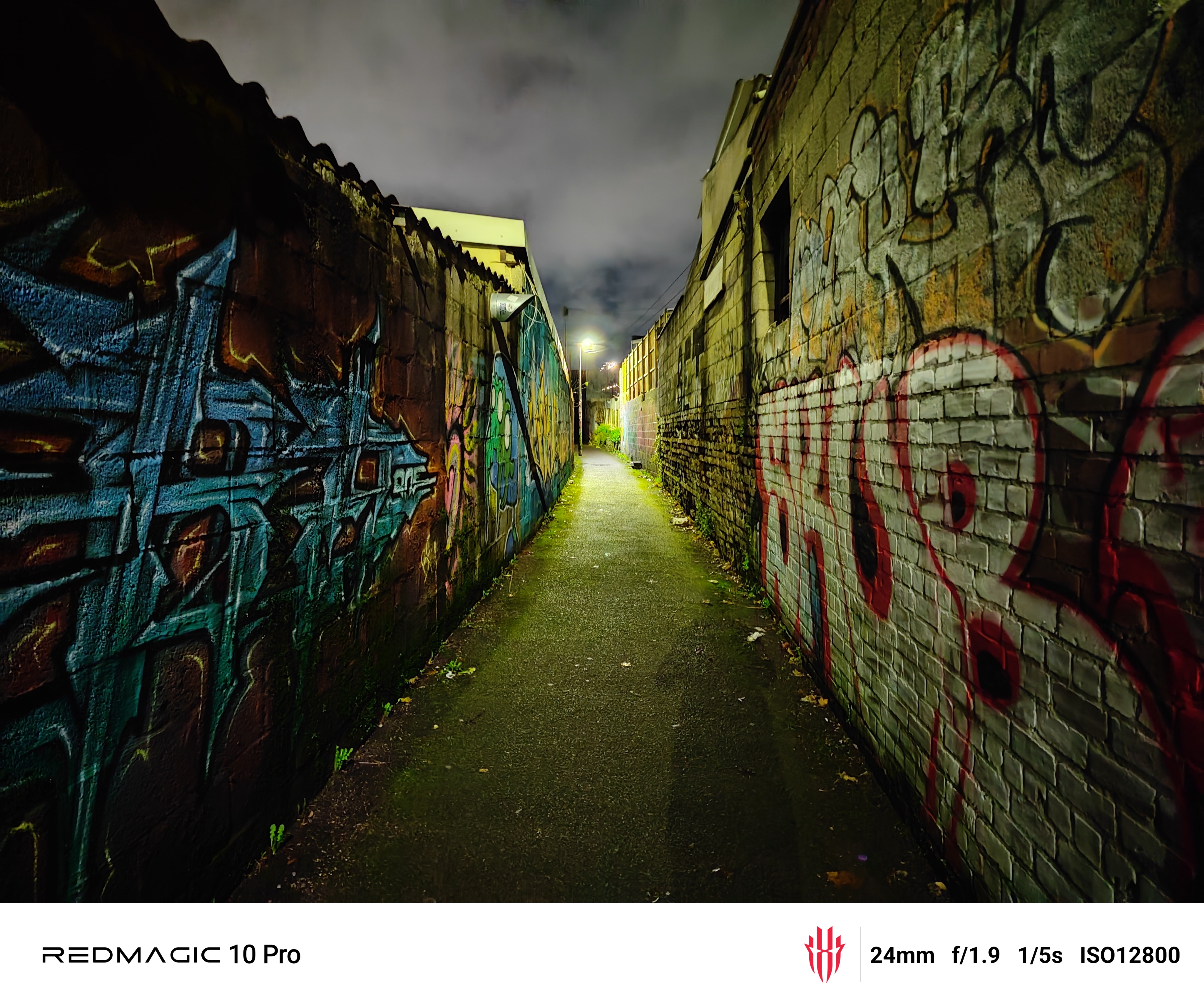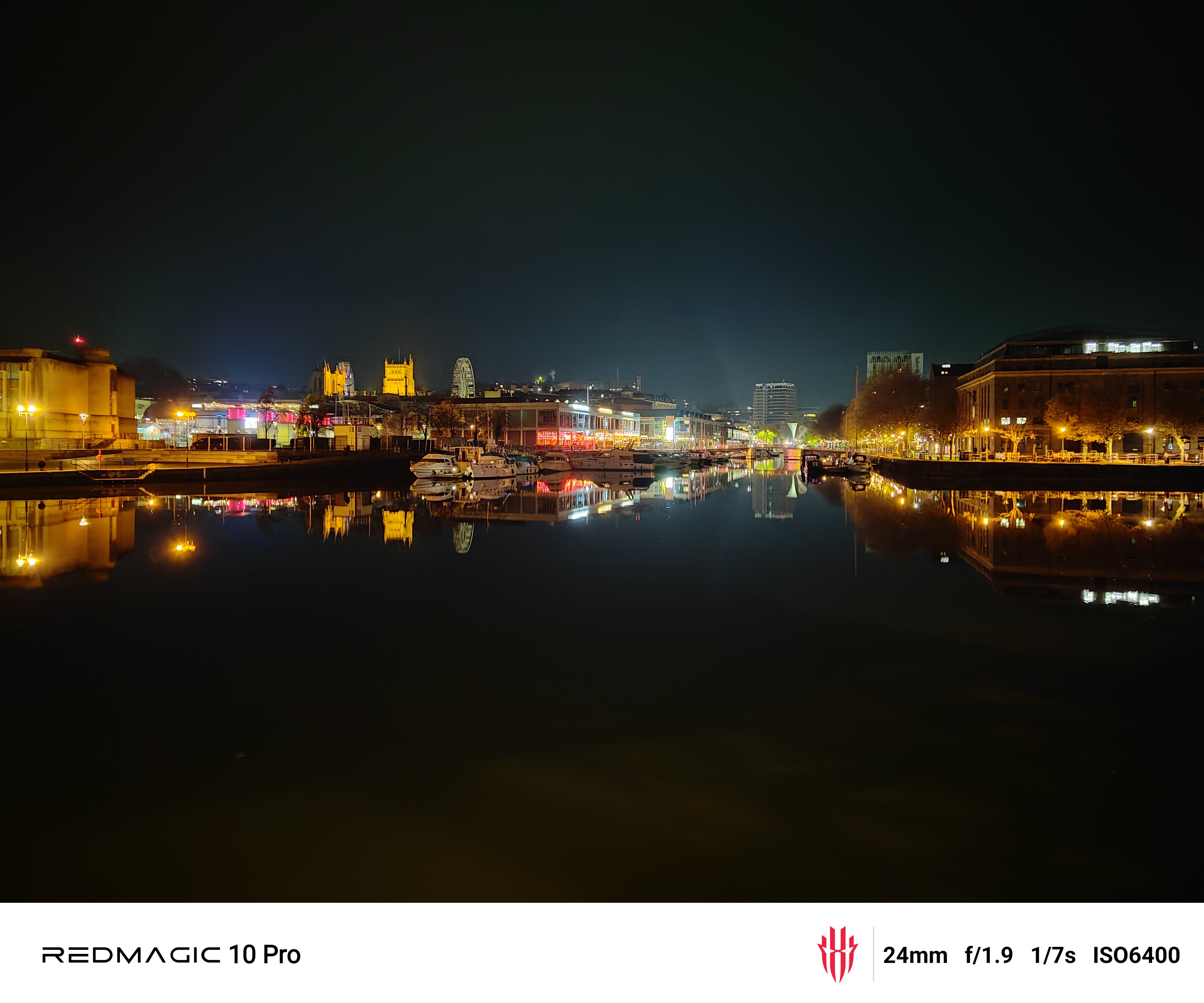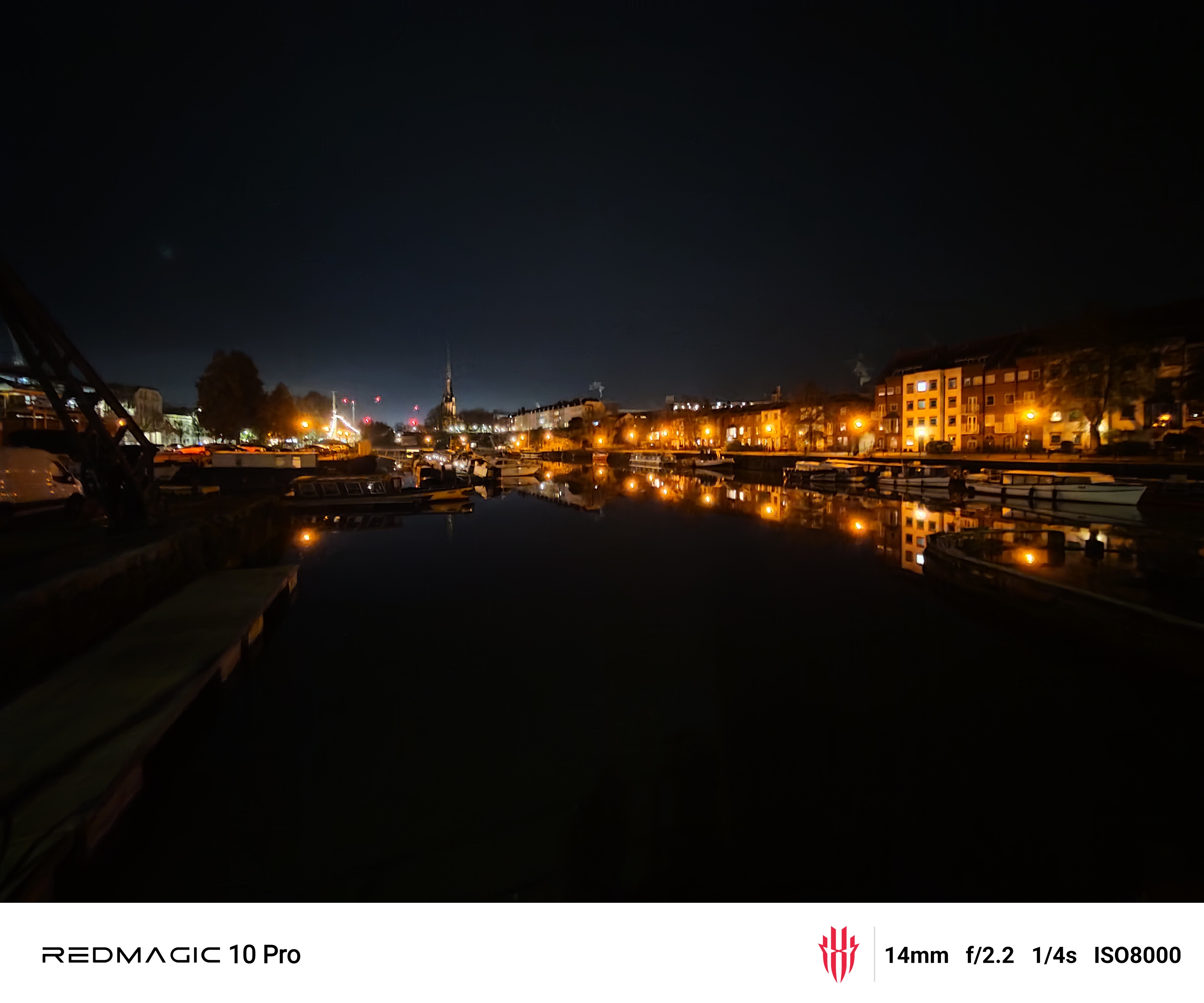Nubia Red Magic 10 Pro: Two-minute review
There are now only two manufacturers involved in the fight to produce the best gaming phone. After Asus played its latest and greatest hand with the premium-priced ROG Phone 9 Pro, it’s Nubia’s turn to offer a more affordable alternative in the Red Magic 10 Pro.
It may cost half the money, but the Nubia Red Magic 10 Pro runs on exactly the same Snapdragon 8 Elite chip as its classy competitor, producing nigh-on identical performance. Indeed, with a built-in cooling fan, the Nubia Red Magic 10 Pro arguably gains a small leg up on the ROG, which requires an external fan to extract the very best from it. It’s certainly a more stable and consistent runner than the preceding Red Magic 9S Pro.
Besides the major boost in performance, the Red Magic 10 Pro adds an even larger battery to the package, which carries it to some of the best stamina we’ve ever seen on a phone. This thing goes for days, and it charges fairly quickly too, courtesy of a bundled-in 80W charger. There’s still no wireless charging, though.
Nubia has also improved the display this time around. The phone’s 6.85-inch AMOLED display is fractionally larger and sharper, and can now hit 144Hz rather than 120Hz. It’s not as fluid as they come (guess which phone gets to 185Hz), but it’s still plenty responsive in practical gaming terms. The peak brightness has also been cranked up, which is always welcome.
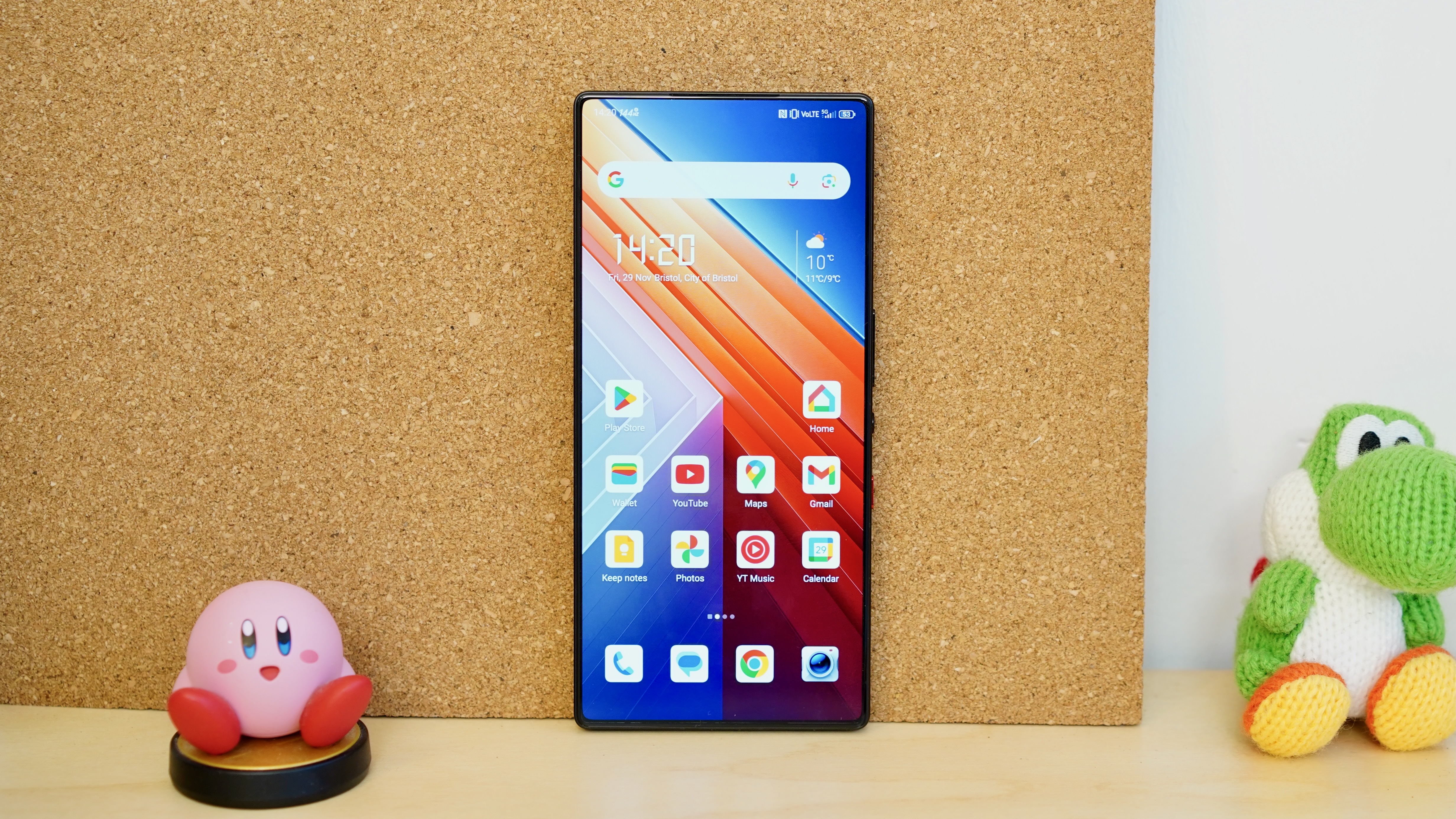
In gaming performance terms, the Red Magic 10 Pro is every bit the match of its gaming phone rival, but it isn’t quite such an elegant performer in the real world.
Despite that larger battery, Nubia has managed to keep essentially the same design as the Red Magic 9 series. This means it remains a big slab of a phone with dead-flat surfaces and a pronounced gamer aesthetic, including RGB lighting and a transparent-effect real panel (at least on the pricier Dusk and Moonlight models).
You also get the requisite capacitive ‘shoulder’ buttons on one of the longer edges, which can be mapped to game functions, as well as a dedicated hardware switch for entering Nubia’s Gamespace UI.
Nubia hasn’t taken any significant steps to improve its camera system. You have the same 50MP wide and ultra-wide cameras, and the same superfluous 2MP macro, not to mention the same 2MP under-display front camera. The latter is a great inclusion for gaming, but an abysmal inclusion for anyone who likes to take selfies.
Another element that’s badly in need of a revamp is Nubia’s Redmagic software. After encouraging signs of improvement, the company seems to have settled on a sub-par interface. It’s fast and fluid, yes, but it’s also quite ugly.
All in all, the Red Magic 10 Pro is a decent, if not seismic improvement on the Red Magic 9S Pro, and it retains the brand’s status as the pound-for-pound gaming phone champ – even if it could use some lessons in class from its more exclusive rival.
Nubia Red Magic 10 Pro review: price and availability
- From $649 / £579
- Early Bird sales start December 12
Open sales for the international version of the Red Magic 10 Pro kick off on December 18, 2024, with Early Bird units rolling out a little earlier on December 12.
Prices start from $649 / £579 for the Shadow model with 12GB of RAM and 256GB of internal storage. Alternatively, you can specify the phone in Moonlight or Dusk (the model reviewed here) with 16GB of RAM and 512GB of internal storage for $799 / £709.
There’s also a new range-topping Dusk Ultra model with 24GB of RAM and 1TB of storage, priced at £879 / $999.
For the cheaper models, the Red Magic 10 Pro is priced exactly the same as the Red Magic 9S Pro and the Red Magic 9 Pro before it.
This is outstanding value for these specifications. It’s also about half the price of what should be its most direct competitor, the $1,199 / £1,099.99 Asus ROG Phone 9 Pro.
Nubia Red Magic 10 Pro review: specs
| Header Cell – Column 0 | Header Cell – Column 1 |
|---|---|
| Dimensions: | 163 x 76 x 9mm |
| Weight: | 229g |
| Display: | 6.85-inch Full HD+ (1216 x 2688) up to 144Hz BOE AMOLED |
| Chipset: | Qualcomm Snapdragon 8 Elite |
| RAM: | 12GB / 16GB / 24GB (LPDDR5X) |
| Storage: | 256GB / 512GB / 1TB (UFS 4.1) |
| OS: | Android 15 |
| Primary camera: | 50MP Samsung ISOCELL GN5 1/1.58-inch sensor w/ OIS |
| Ultra-wide camera: | 50MP Samsung ISOCELL JN1 1/2.76-inch sensor |
| Macro camera | 2MP |
| Front Camera: | 16MP under-display |
| Battery: | 7,050mAh |
| Charging: | 80W wired |
| Colors: | Shadow, Dusk, Moonlight |
Nubia Red Magic 10 Pro review: design
- Toughened glass and aviation aluminum middle frame
- Completely flat with no camera bump
- 520Hz capacitive shoulder trigger buttons
- Dedicated gaming mode switch
Nubia hasn’t changed things up much on the design front from the 9 Series. This is another large slab of a phone with a broadly similar size of 163 x 76 x 9mm and an identical weight of 229g.
That’s about the same size as the Asus ROG Phone 9 Pro, but outside of gaming phones, this is right up there with the Samsung Galaxy S24 Ultra. Subtle it ain’t.
One thing that is relatively subtle is the total lack of a camera module. This phone is dead flat, which is vanishingly rare in the smartphone field. It means the only pocket snags you’re likely to get here are from the prominent circular power button and the physical Gamespace slider, both situated on the right-hand edge.
Also situated on this stacked side of the phone are the two 520Hz capacitive triggers, which have RGB lighting underneath. These can be mapped to gaming controls where such remapping is supported.
You’ll also notice a pair of vents, one on either long edge. This marks where the Red Magic 10 Pro’s internal cooling fan is situated, expelling hot air when the phone is working hard on intensive games. Naturally, an unwelcome byproduct of this is the complete lack of any serious water resistance – something the Asus ROG Phone 9 Pro offers in flagship levels.
Like its pricey rival, the Red Magic 10 Pro features a 3.5mm headphone jack, here situated on the top edge. Unlike the ROG Phone 9 Pro, you only get the one USB-C port in the usual position on the bottom, so charging while you game is less comfortable.
Another striking element of the Red Magic 10 Pro is its all-screen front, with a uniform bezel side of just 1.25mm all around. Together with an under-display selfie camera, it makes for a phone that gets close to that all-screen fantasy we’ve had ever since the first iPhone, with a larger-than-ever 95.3% scree-to-body ratio.
It looks great, but I maintain this isn’t a very gamer-friendly design. It means that your hands are more likely to get in the way whilst gaming in landscape mode. I also found that certain mobile game controllers overlapped the display, making it impossible to exit out of games or drag in the gaming UI.
Another non-gaming-friendly byproduct of this design is the lack of twin front-firing speakers. The earpiece serves as the left speaker, but the right speaker is situated on the bottom edge of the phone, which means it can be covered while gaming.
All versions of the Red Magic 10 Pro get RGB lighting in a couple of symbols on the back of the phone, as well as on the visible cooling fan. The Dusk and Moonlight models also get a semi-transparent rear cover that exposes some circuit-aping elements. It’s a bit naff, but it isn’t too in-your-face.
Nubia Red Magic 10 Pro review: display
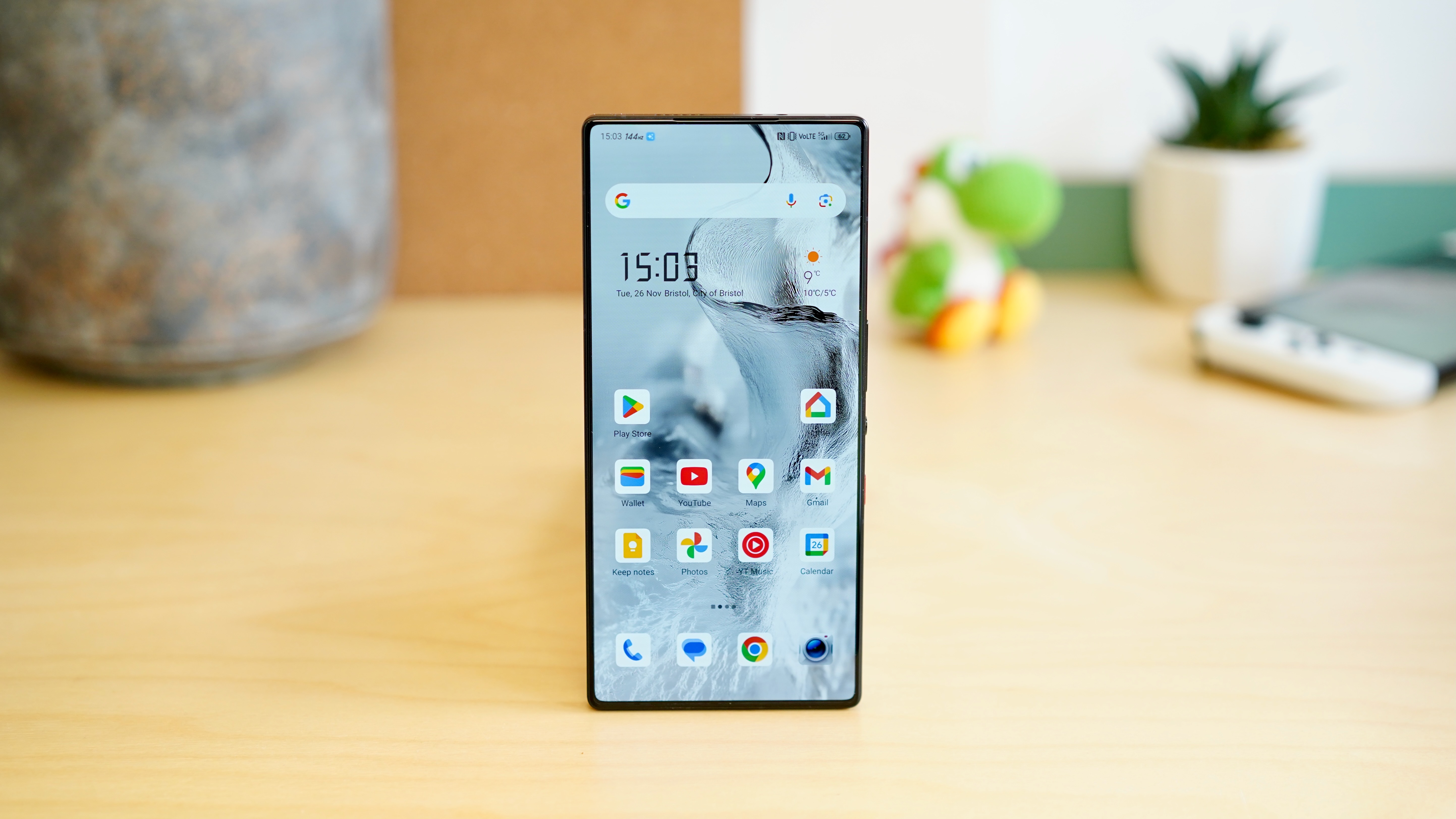
- Huge 6.85-inch screen
- 1216 x 2688 resolution, 144Hz refresh rate
- Bolstered 2000 nits peak brightness
- Under-display selfie camera
Nubia has subtly changed things up on the display front, and it’s all for the better. That starts with a fractionally (and I do mean fractionally) larger 6.85-inch size, which is a vast canvas for gaming – especially when that canvas is completely unbroken by any troublesome notches or rounded-off corners. With the former point, Nubia’s in-display camera means that you won’t have any on-screen elements blocked by an unsightly camera island.
This is a nice, vibrant AMOLED from BOE, projecting punchy colors and deep blacks. You can tone that punchiness down towards something more natural in the Settings menu, which I was happy to do.
Another small improvement is the Red Magic 10 Pro screen’s higher resolution. At 1216 x 2688, it’s somewhere in between an FHD+ (like previous models) and a 1.5K resolution. It’s questionable whether packing more pixels is beneficial within a gaming context, at least for fast-paced competitive games where frame rates are everything, but the extra strain on the GPU isn’t too pronounced.
Talking of refresh rates, Nubia has bumped the display’s maximum refresh rate up from 120Hz to 144Hz. That still falls well short of the Asus ROG Phone’s fresh high of 185Hz, but the list of widely played games that can even push beyond 120Hz is relatively slim.
Finally, Nubia’s new display ups the peak brightness from 1600 nits to 2000 nits. That’s a localized measurement for HDR content, but in general usage, this screen gets plenty bright.
Nubia Red Magic 10 Pro review: cameras
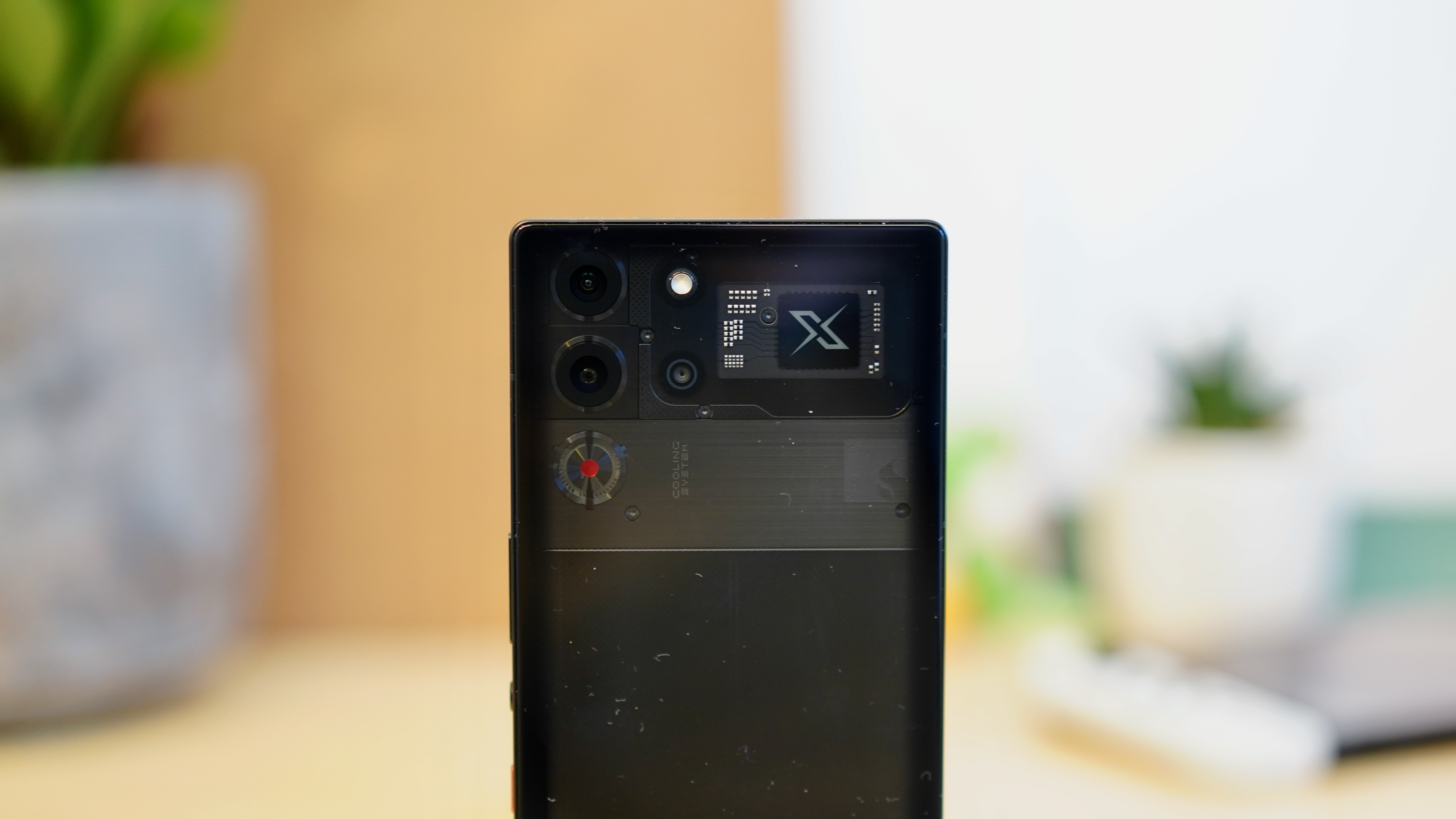
- 50MP main with OIS
- 50MP ultra-wide, 2MP macro
- 16MP in-display selfie camera is all but worthless
- Up to 8K/30fps video
So far the Red Magic 10 Pro has been a case of small but welcome improvements, but that progress screeches to a halt with the camera.
As far as I can tell, Nubia hasn’t upgraded the phone’s photographic capabilities one jot, at least from a hardware perspective. There’s the same Samsung GN5 50MP main camera with OIS and a 7P lens, the same Samsung JN1 50MP ultra-wide, and the same completely unnecessary 2MP macro camera in place of a dedicated telephoto.
You also get the same 16MP under-display selfie camera, which we’ll come to in due course.
Putting aside any minor image processing improvements brought about by the new Snapdragon 8 Elite chip and Nubia’s algorithm improvements, the Red Magic 10 Pro takes photos that are about as good as the Red Magic 9S Pro and Red Magic 9 Pro before it.
This is the one area where the Red Magic 10 Pro’s asking price doesn’t feel especially cheap. That is to say, the shots I captured during my time with the phone screamed mid-range – and not the top end of mid-range either. The Google Pixel 8a takes way better shots, for example.
With all that said, the Red Magic 10 Pro takes adequate shots in decent lighting conditions. It struggles a little with blown-out highlights in demanding HDR shots, and it punches up colors to a slightly unnatural degree.
But there’s a richness to these shots, and detail levels aren’t bad at all. Night shots, too, look pretty serviceable, thanks to a reasonable sensor size and proper stabilization technology.
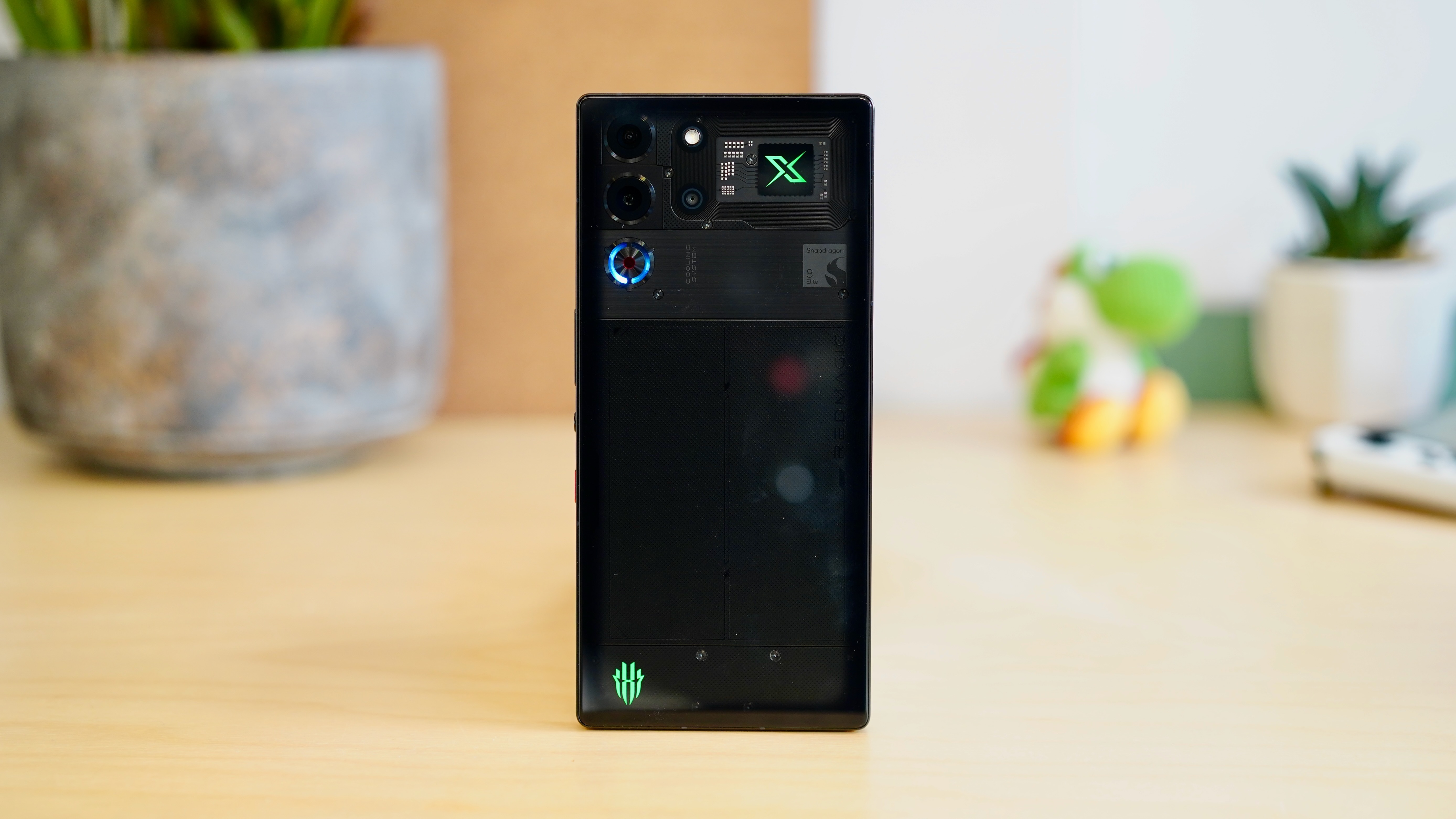
The 50MP ultra-wide might match the pixel count, but it’s a very different proposition. Fine detail drops off, betraying its significantly smaller sensor in inferior lens configuration, but you expect that. What’s less forgivable is the fact that the tone is completely different from the main sensor – a much paler, even yellowier look.
There’s no telephoto camera, but 2x cropped zoom shots look respectable thanks to that seasoned main sensor. Further notches on the virtual zoom ring yield much softer snaps, culminating in downright unusual 10x shots.
We can largely ignore the 2MP macro camera. It’s not sharp enough to take extreme close-ups of any quality, but that’s such a niche use case that it doesn’t warrant too much more discussion.
Far more problematic is the 16MP front camera. While Nubia’s choice to place it behind the screen has major benefits for design and screen legibility, it’s awful for selfies.
These already-pokey sensors are starved of even more light than they would normally get, resulting in extremely soft and noisy selfies. Skin tones take on an eerie waxwork quality, and subject separation is very poor.
Video recording goes right up to 8K/30fps or 4K/60fps, and there’s tracking autofocus if you want to follow a subject.
Like the Asus ROG Phone 9 Pro, you can assign the capacitive shoulder button to the task of shutter button, which is welcome. Generally, though, the comparison between these two camera systems doesn’t flatter the Red Magic. If you want a gaming phone that takes good photos, there’s really only one choice.
Nubia Red Magic 10 Pro review: camera samples
Nubia Red Magic 10 Pro review: performance
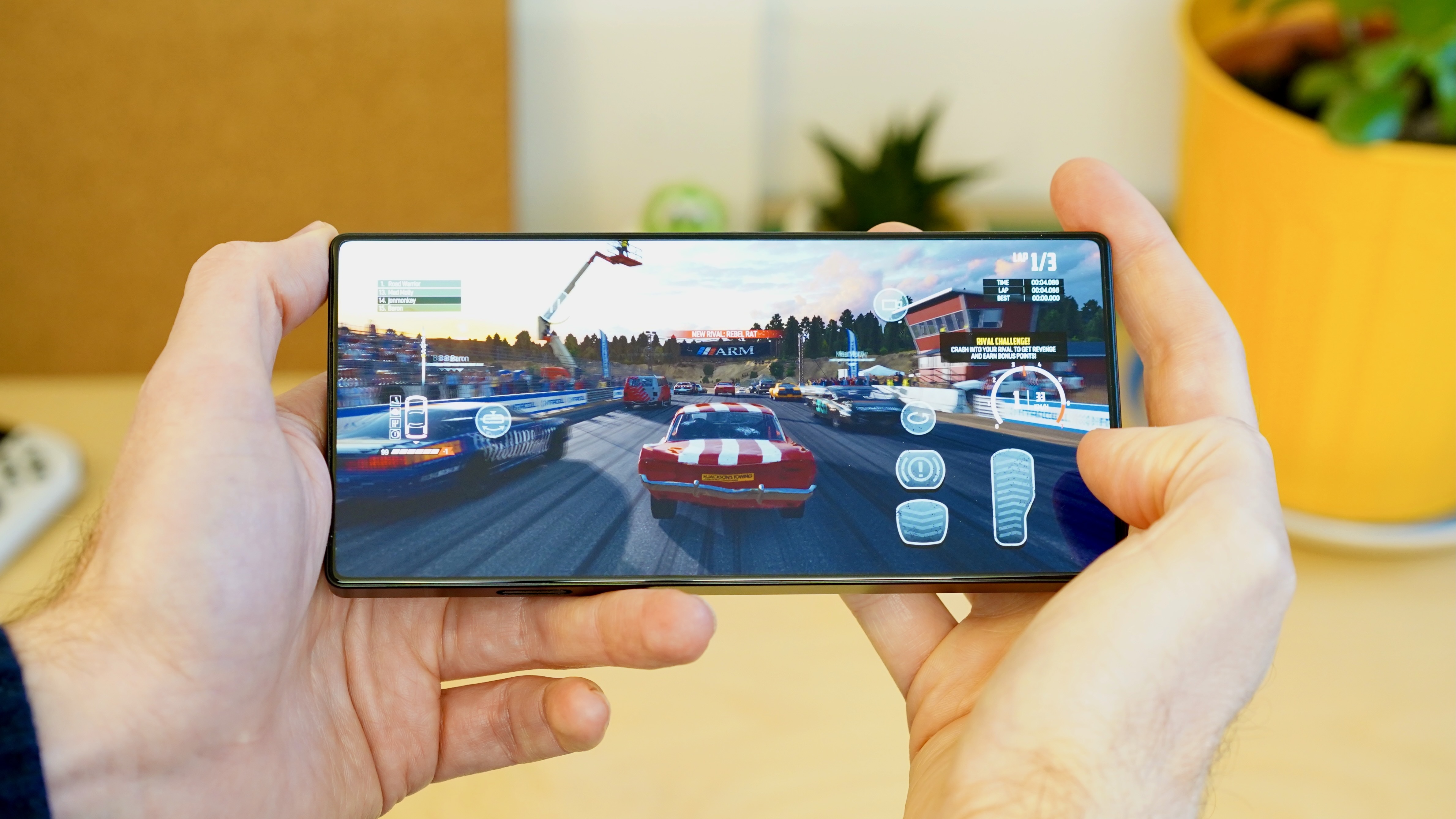
- Features the brand new Snapdragon 8 Elite chip
- 12GB, 16GB, or 24GB of LPDDR5X RAM
- 256GB, 512GB or 1TB of UFS 4.1 storage
- Blistering sustained performance
The whole purpose of the Red Magic 10 Pro’s existence, and the reason Nubia brings out a new model every six months, is to provide the very best performance possible. Whatever else you might do with this phone, gaming is the priority, and that requires power.
Here that’s provided by Qualcomm’s latest Snapdragon 8 Elite chip. As we discovered in the Asus ROG Phone 9 Pro, this is an absolute monster, topping even Apple’s A18 Pro from the iPhone 16 Pro Max across a number of metrics.
Running several established benchmark tests, the Red Magic 10 Pro performed broadly as well as the ROG Phone 9 Pro, as you might expect. That is, it delivered around 40% better CPU performance than the previous Snapdragon 8 Gen 3 class, and around 24% better GPU performance.
I did encounter a strange quirk in the GPU-focused GFX Bench test, however, which saw all of the on-screen tests topping out at 60fps. That’s less than half what the ROG achieved.
This seems to be a particular glitch with the way Red Magic phones interact with this app, though – the fixed 60fps suggests it was hitting an artificial ceiling of some kind. Looking back, it’s something that also seemed to affect the Red Magic 9S Pro and 9 Pro. In other GPU performance tests, the Red Magic 10 Pro was on even terms with the ROG, so I’m happy to write this off as an anomaly.
More important to any gaming phone is the matter of sustained performance, or how long it can stay at peak performance levels before the heat build-up causes throttling issues. After the 9S Pro threw up a few worrying stress test results, the 10 Pro is back on course.
In 3D Mark’s Solar Bay Stress Test, which runs 20 consecutive intensive minute-long GPU tests, the Red Magic 10 Pro scored a near-perfect 99.8%. That’s about the same as the ROG Phone 9 Pro. The peak loop score of 10032 is about the same, too.
Of course, the ROG Phone 9 Pro manages all this without the need for a physical fan, though it’s when you take your gaming session to an hour and beyond that this active cooling is likely to pay dividends. There’s a reason Asus packs a chunky external fan into the box with its Pro model.
Nubia Red Magic 10 Pro review: software
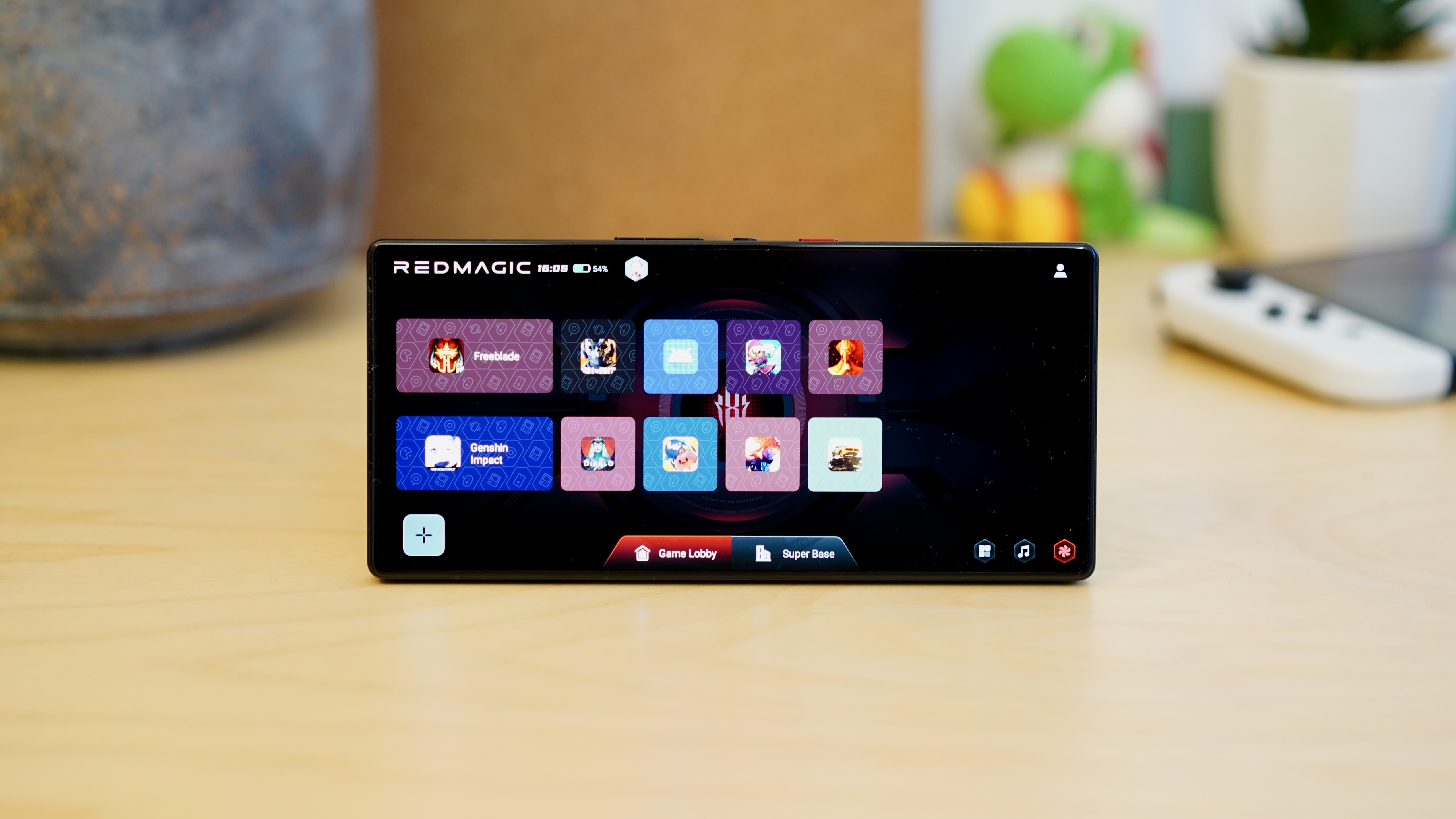
- Red Magic OS 10 on Android 15
- UI is charmless but fluid and customizable
- Dedicated Game Space gaming UI
- Only one Android version & three years of security updates
Nubia’s bespoke Red Magic OS hits version 10 with the Red Magic 10 Pro, and while it’s way cleaner and less janky than earlier versions, it’s still a slightly charmless affair.
Nubia doesn’t fancy the option of a clean, modern-looking take on Android 15, as Asus provides with its ROG Phone 9 Pro. You have to make do with its own Android skin, which is all blocky icons, a more cluttered notification menu, and a huge widget dedicated to turning the fan on and off.
I appreciated the option to choose between gesture and virtual navigation at the outset (something Samsung still doesn’t provide, for example), as well as the option to switch back to regular round Android icons – though the latter option is buried in the Themes section of the Settings menu.
The Red Magic 10 Pro isn’t immune from bloatware, though. There’s still a pointless, home-brewed web browser, a folder full of ‘Hot Games’ (spoiler: they’re by no means hot), and of course, the ubiquitous Booking.com app. At least it’s possible to prevent a number of the terrible-looking games from preinstalling at the outset.
Other preinstalled Nubia apps include a Voice Recorder, as well as a gaudy Goper app dedicated to managing any Red Magic peripherals you might have.
Perhaps the most ugly aspect of the home screen comes when you drag to the left of the main home screen, where Google’s default Feed has been replaced by a garbled collection of widgets (step counting, weather), recommended apps (which all look awful), and randomly selected news items interspersed with ads. You can toggle this screen off in the Settings menu, but I would have liked the option to restore the traditional Google Feed.
For all these little bugbears, Red Magic OS is much improved from where it used to be. It runs quickly, with speedy transitional animations that mostly keep up with that enhanced display refresh rate. Poor translations and typos aren’t nearly as prevalent as they used to be, either.
The other positive is Nubia’s Game Space game management UI. This can be activated with the flick of the physical switch on the side of the phone, and it lets you manage the phone’s performance within individual games.
You can tweak to your heart’s content here, including things like screen sensitivity settings, adjusting screen ratios on a game-by-game basis, and the like. You can also manage plug-ins for individual games, adding cheat-like heads-up information like enhanced zoom and sound equalizers in shooters.
You can also access some of these settings with a lateral drag from the side of the screen when in games, which works reliably.
Nubia has included a bunch of Google Gemini-assisted AI features, including photo editing, photo search, real-time translation, and chat with Gemini. This is fast becoming normal on Android phones, but I’m kind of glad they’re not competing with a load of confusing home-brewed and half-baked AI features from Nubia.
Sadly, Nubia hasn’t yet followed the industry’s direction of travel when it comes to ongoing support. It’s only promising one major Android upgrade to Android 16, with two generations of UI and three years of security updates.
Nubia Red Magic 10 Pro review: battery life
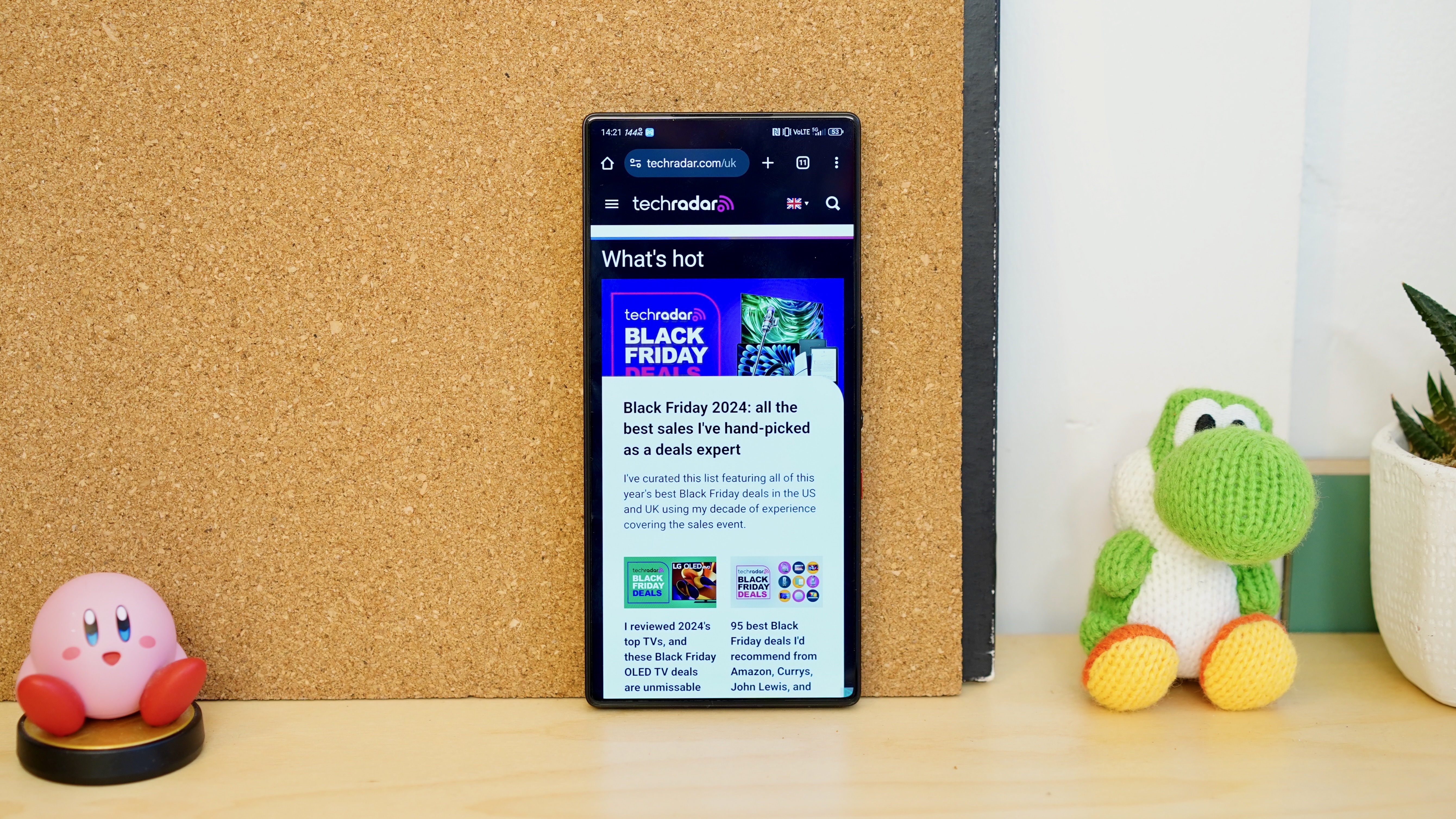
- 7,050mAh battery
- Comfortably two days of regular usage
- Fast 80W wired charging
Nubia’s gaming phones have always sported chunky batteries, but the Red Magic 10 Pro takes things to the next level. It features a 7,050mAh battery, which is absolutely cavernous by any smartphone standards.
It’s a massive 1,250mAh larger than the Asus ROG Phone 9 Pro’s battery, for one thing. Unsurprisingly, it yields epic everyday results.
After a full day of light to moderate usage, with four hours of screen-on time, I was left with around 70% in the tank. That’s astonishing stamina, and it means that you could conceivably go through two full days of heavy usage.
What it’s actually designed for, of course, is enabling you to mix in intensive gaming sessions during a regular day. On that front, the Red Magic 10 Pro can conceivably last a full day with ease.
Charging remains relatively swift with a bundled-in 80W charger, although, of course, you have to factor in that extra battery capacity. Even so, I was able to get the phone from empty to full in around 40 minutes, which is better than the Asus ROG Phone 9 Pro.
You don’t get the latter’s secondary USB-C port, mind, which would have been a nice gamer-friendly touch. You also don’t get the ROG’s wireless charging, which is more of a day-to-day quality of life inclusion.
Should I buy the Nubia Red Magic 10 Pro?
| Attributes | Notes | Rating |
|---|---|---|
| Design | The Red Magic 10 Pro is big and heavy, but it’s also completely and refreshingly flat. | 3.5 / 5 |
| Display | Nubia’s latest screen is slightly bigger, brighter, and sharper, and it now gets to 144Hz. | 4 / 5 |
| Performance | With the new Snapdragon 8 Elite and excellent cooling, the Red Magic 10 Pro is one of the fastest phones around. | 4.5 / 5 |
| Camera | A decidedly middling camera setup with a competent, if ageing main camera, a mediocre ultra-wide, and a terrible selfie cam. | 3 / 5 |
| Battery | Thanks to a vast 7,050mAh battery, the Red Magic 10 Pro packs epic multi-day stamina, as well as nippy 80W charging. | 5 / 5 |
| Software | Nubia’s custom UI remains a charmless affair, but it’s fast and fluid, with plenty of customization potential for gamers. | 3 / 5 |
| Value | At half the price of the Asus ROG Phone 9 Pro, but with similar performance, the Red Magic 10 Pro provides outstanding value for committed gamers. | 5 / 5 |
Buy it if…
Don’t buy it if…
Nubia Red Magic 10 Pro review: also consider
The Nubia Red Magic 10 Pro is a great-value gaming phone, but there are still some excellent alternatives to consider.
How I tested the Nubia Red Magic 10 Pro
- Review test period = 1 week
- Testing included = Everyday usage, including web browsing, social media, photography, gaming, streaming video, music playback
- Tools used = Geekbench 6, GFXBench, 3DMark, native Android stats, bundled Nubia 80W power adapter
First reviewed: November 2024


